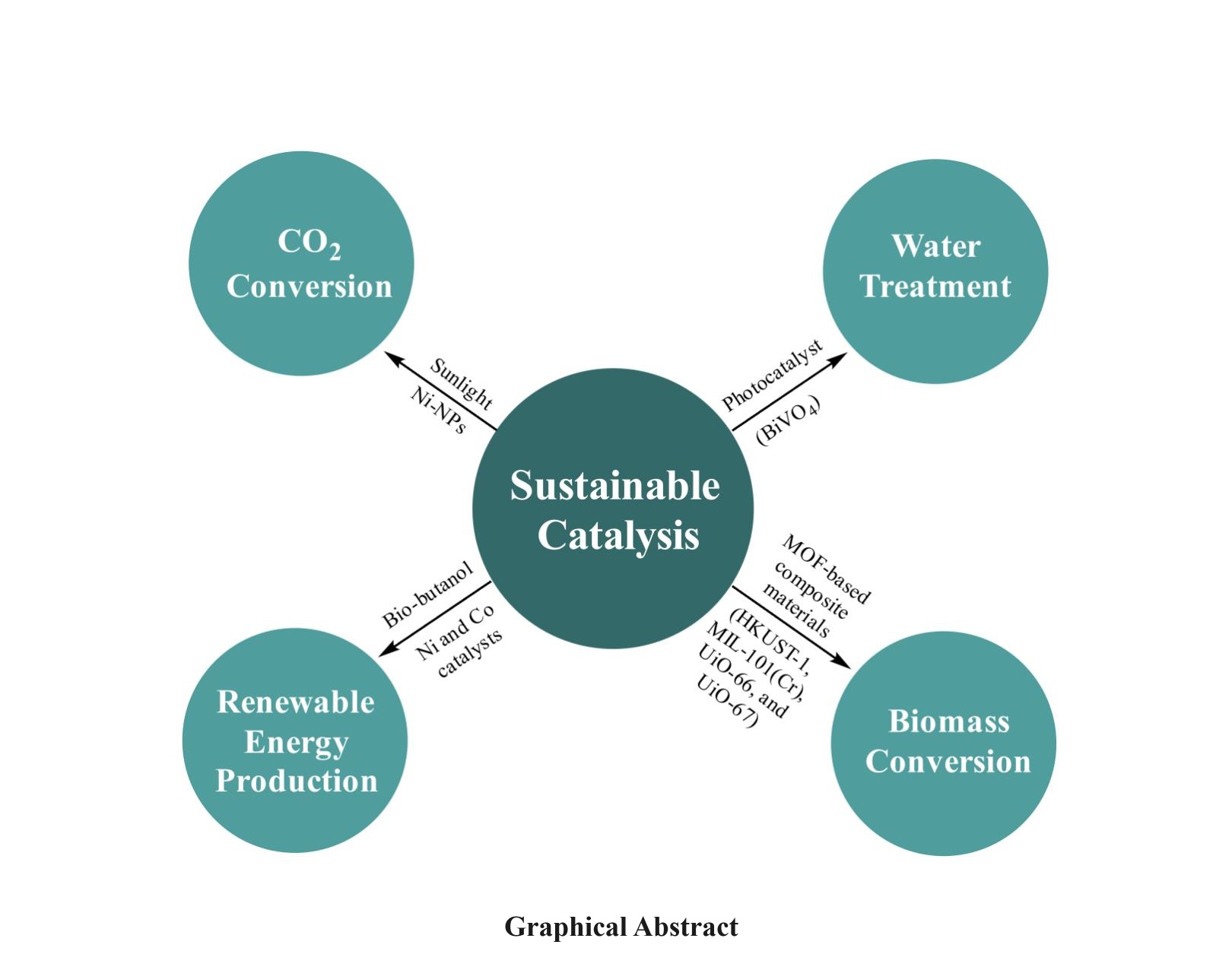Sustainable Catalysis: Navigating Challenges and Embracing Opportunities for a Greener Future
DOI:
https://doi.org/10.56946/jce.v2i2.205Keywords:
Catalysis, Sustainable Chemistry, Green Chemistry, Catalyst recovery, Bio-inspired CatalystAbstract
Catalysis plays a crucial role in sustainable chemistry, as demonstrated in this review article. The introduction highlights the importance of catalysis in sustainability and summarizes catalysis research. In this review, we discussed sustainable catalysis, including green chemistry, sustainable catalysis criteria, and catalytic reactions. These examples demonstrate CO2 conversion, alcohol dehydrogenation, alkene oxidation, and biomass-to-biofuel conversion using zeolites. This study also examines sustainable catalysis difficulties like stability, synthesis, design, recovery, reuse, scale-up, and commercialization. Sustainable catalysis can be achieved via bio-inspired catalysts, renewable energy sources, nano-catalysis methods, computational methods, and innovative catalysts developed for sustainable chemistry. This study also includes sustainable catalysis case studies for CO2, biomass, water treatment, and renewable energy conversion. The review finishes with sustainable catalysis research directions. These directions include studying metal-free catalysis, integrating catalysis with other sustainable fuel cell technologies, implementing sustainable catalysis in industry, and its environmental and societal impacts. The topic covers photocatalysis, heterogeneous catalysis, and electrocatalysis, highlighting their environmental and economic effects. This comprehensive study of sustainable catalysis shows its potential to transform chemical reactions while emphasizing environmental and social concerns, improving green chemistry.

Downloads
Published
How to Cite
Issue
Section
License

This work is licensed under a Creative Commons Attribution-NonCommercial-NoDerivatives 4.0 International License.


